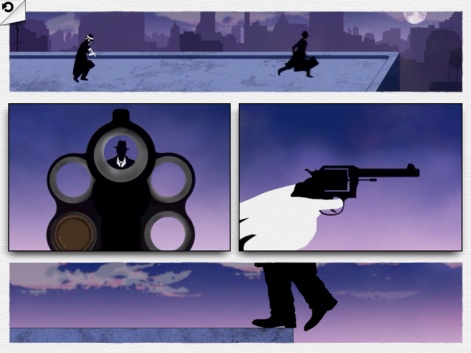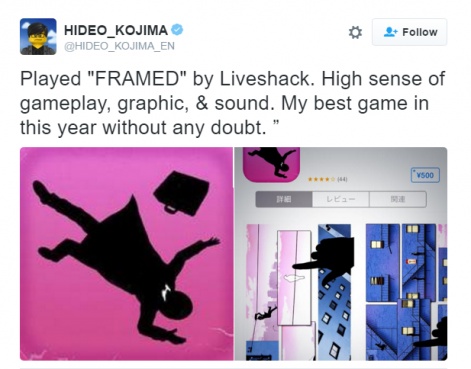When you go to the website of acclaimed 2014 indie hit FRAMED, you're slapped across the face with a wall of awards.
But in an emotionally-charged talk at GDC 2016's Independent Game Summit - titled 'The Unsatisfied Mind' - its designer Joshua Boggs reveals that this didn't make him happy.
It should have been. It was, after all, what Boggs had always sought after. But as the insatiable appetite for awards and recognition grew and grew, so too did the sense of their true insignificance.
Approval needed
“This talk is about how that need for attention and approval damaged significant parts of my life - excuse me if this gets a little dark,” begins a choked-up Boggs.
Boggs' story begins at his teenage years, when he was "really unsatisfied in life" and "needed to be remarkable."
He recalls a game he played as a teenager called 'The Deathbed Experiment': “You just fully imagine yourself on your deathbed, looking back. What are you proud of? What's not happened yet? What's meaningful to you?”
What Boggs now realises, though - and a message he very much wants to make clear for others - is that he had been confusing legacy with fame.
Before FRAMED had even launched, it was being lauded by the press and given awards.
It was no longer a ride to the top, but a ride to hell.Joshua Boggs
"I was getting praise that I needed, but I just wasn't satisfied with it," he reflects. “[I had an] addiction to approval and external validation… it was no longer a ride to the top, but a ride to hell.”
With this talk, though, the real motivation is to help those in the audience to identify similar damaging behaviours in themselves. “If you're really honest with yourself, why do you create?” he questions.
“We're basically a generation of creators crying out for the validation of our parents.”
Dangerous ambition
Indie scenes are breeding grounds for this kind of behaviour, he adds, which is why he feels so strongly about spreading his message.
“What people really talk about when they talk about what they gave up to succeed, they're talking about sacrificing themselves," he says. "My values I threw away.”
"I neglected friends and family members when they needed me. I changed, I became something I never wanted to become... I sacrificed what makes me who I am."

Explaining that he never sought happiness, only success, it's a mistaken conflation that he feels is made by many independent developers.
It's an age-old story; when you get what you're chasing for, true satisfaction rarely follows.
“In the fall of 2014 when FRAMED was finished, even though I'd achieved everything I'd set out to do, I felt worse than ever," explains Boggs.
Glimmer of hope
But while all the awards he had so greedily received along the way no longer meant anything, Boggs' story fittingly ends with an acolade far less formal, but several times more meaningful.
There was no ceremony or award, but Hideo Kojima, creator of the Metal Gear Solid franchise, named FRAMED as his Game of the Year.

“To me it meant a lot," says Boggs. "His dedication and values shaped me as a person... I wouldn't give it up for anything.”
Having finally found balance, and now in a happier frame of mind after beginning to undergo therapy and drinking less alcohol, Boggs ends with an impassioned plea for others in a similar situation to seek help.
Returning to his opening slide, the title has a subtle but significant alteration. The 'Un' is gone; 'The Satisfied Mind' remains.





















